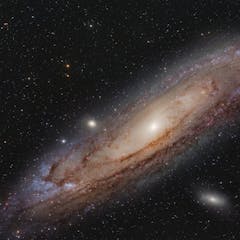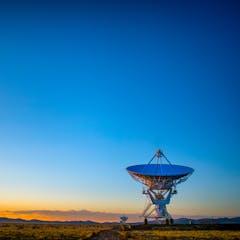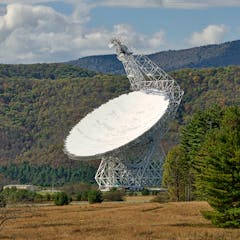
Articles on SETI
Displaying 1 - 20 of 53 articles

AI may be destroying civilisations before they get a chance to explore space properly.

Europa Clipper will contain a plaque that celebrates humanity’s relationship with water and a decades-old tradition of searching for life outside Earth.

When most of us left school there were still 9 planets – but we’ve come a long way since Pluto’s demotion. Here’s what’s next on the space agenda.

Several scientific projects are aiming to investigate UFO sightings.

Previous searches for extraterrestrial life have included only the radio band above 600 MHz, leaving lower frequencies virtually unexplored.

Whistleblower allegations that the government possesses UFOs may not be backed up by public physical evidence, but some argue that listening for extraterrestrial life is the first phase of contact.

Three Indigenous studies scholars draw from colonial histories and explain why listening for alien life can have ethical ramifications.

Space telescopes are limited in size due to the difficulties and cost of getting into orbit. By revamping an old optical technology, researchers are working on a lightweight and thin telescope design.

The accumulated radio emission from mobile phones on Earth is beginning to become quite significant.

Artificial intelligence tools are making waves in almost every aspect of life, and astronomy is no different. An astronomer explains the history and future of AI in understanding the universe.

With more than 5,000 known exoplanets, astronomers are shifting their focus from discovering additional distant worlds to identifying which are good candidates for further study.

To date, we have not heard from any aliens. Nor have we seen any – but here are the fascinating projects working to change that.

Can artificial intelligence transform the search for alien intelligence?

AI’s ability to identify ‘technosignatures’ missed by classical algorithms is an exciting step forward for radio astronomers.

The technology of an advanced alien civilization is likely to produce many signs that could be detected across the vastness of space. Two astronomers explain the search for technosignatures.

Research on exoplanets over the next couple of decades could help us more accurately estimate how many intelligent alien civilisations there are in our galaxy.

Have astronomers finally found evidence of intelligent found life beyond Earth?

A photo of ‘doorway’ on Mars shows how ready our minds are to see significance and signs of life in the natural world.

This year, two groups of astronomers plan to send messages containing information about humans and the location of Earth toward parts of space they think may be home to intelligent life.

Astronomers hunting extraterrestrials were excited to discover an intriguing signal, but closer inspection has revealed it wasn’t aliens.





